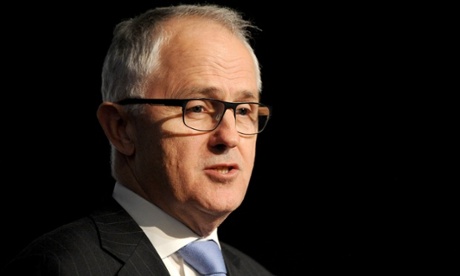
The consumer advocacy group Choice says blocking websites in an attempt to curb copyright infringement would be like “whacking moles”.
Choice chief executive Alan Kirkland told a copyright panel hosted by the communications minister, Malcolm Turnbull, he had serious concerns about the effectiveness of blocking websites that may have material that infringes copyright.
“The fundamental test if we are going to do something is we need to be confident it will work,” he said at the Online Copyright Infringement Forum in Sydney on Tuesday night.
“If you look at site blocking it is like whacking moles. People who run websites move much faster than courts.”
The federal government has released a discussion paper outlining two key proposals to be canvassed for public consultation.
It raises the use of “extended injunctive relief” against copyright infringers, which would allow entities to seek injunctions directly against internet service providers (ISPs) to block websites.
It also discusses different forms of “extended authorisation liability” that would penalise ISPs if they failed to take “reasonable steps” to remove information when notified of infringements.
The proposals have sparked considerable debate between rights-holders, the film and television industry and ISPs over their effectiveness and the responsibility for any costs they might incur.
The chief executive of iiNet, David Buckingham, said blocking websites was not easy to oversee.
“I am worried about the ability for a law like that to be put in place, to be put in effect,” he said.
“Where will the checks and balances come from? Something like that needs to be very carefully monitored.”
He also questioned the effectiveness of an injunctive relief scheme.
“Technology finds a way around those things and makes it hard for someone to pin things down.”
Buckingham was pressed repeatedly by Village Roadshow co-chief executive Graham Burke about throttling internet speeds for people who download content illegally, which iiNet does not support, but Village Roadshow favours.
Burke said: “In Australia we’re just saying slow the speed … my wife is a customer of yours and she has her speed cut down regularly.”
The Foxtel chief executive, Richard Freudenstein, warned that creative industries were at risk if action was not taken on copyright infringement.
“If we sit and wait and we don’t introduce some scheme soon there won’t be an industry,” he said.
“If there aren’t models that can make that work … there’s going to be very, very different types of movies.
“We’re going to have a lot more cats on skateboards and a lot less Game of Thrones.”
Brett Cottle, the chief executive of the Australasian Performing Right Association (APRA), said an “entire generation have gotten into the habit of believing that content is free”.
Turnbull, who led the discussion, said there would be extensive consultation before any legislation was brought forward, and stressed the importance of having a clear understanding of costs associated with any scheme.
“This is an exercise in consultation, we’re not drafting the law tonight,” he said.
“What we’ve sought to do is go beyond just putting up a whole bunch of submissions on a government websites.”

